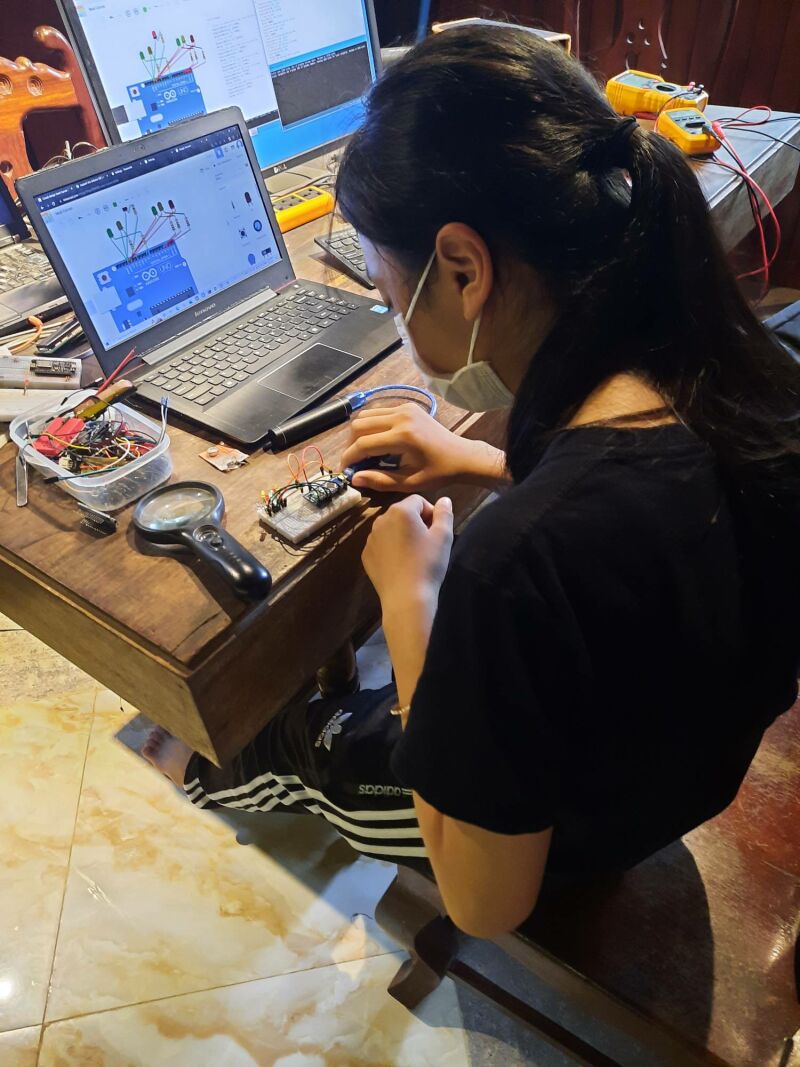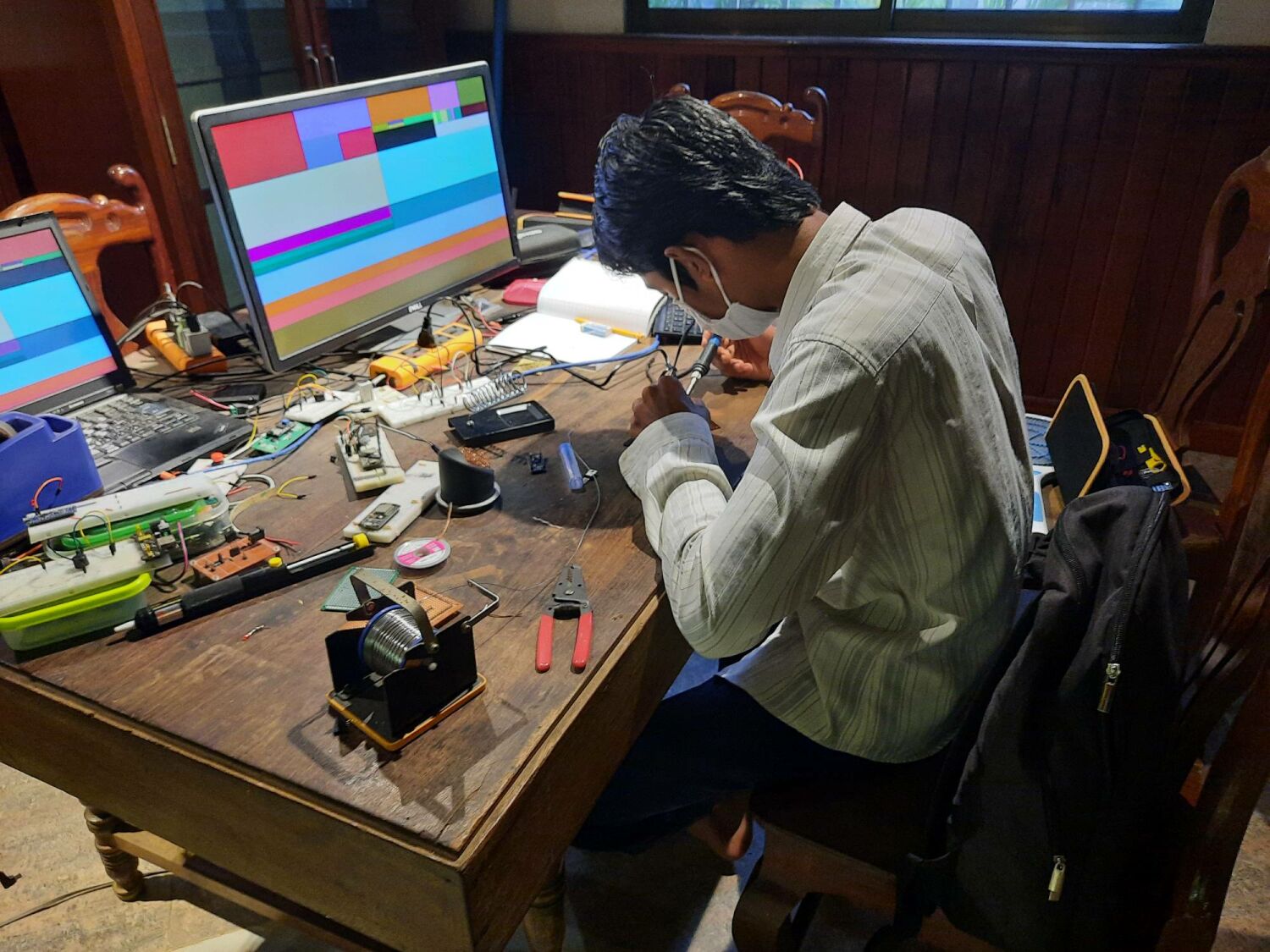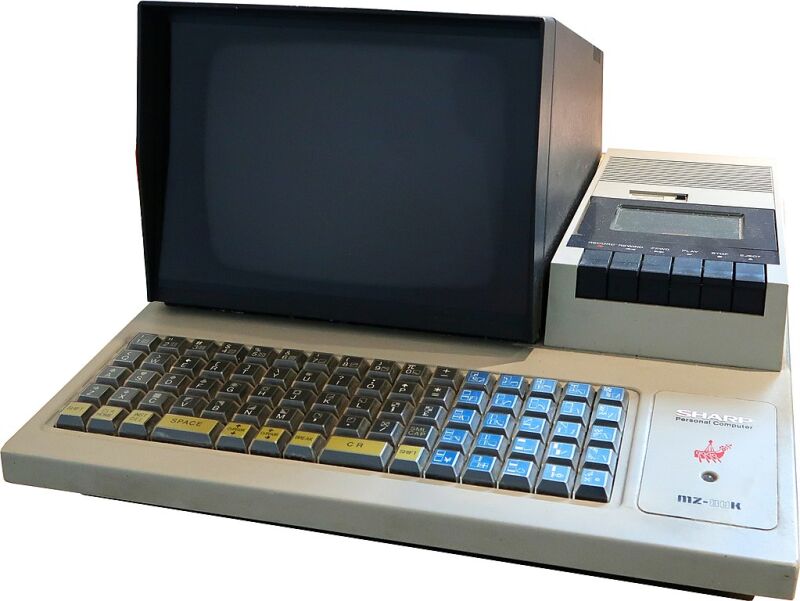Updated:
When I started my electronics class, I was not sure how it would go. After months, the students finally write actual code that does something more than blinking an LED.
The class started from the very basics, such as what the voltage is, how electrons flow in a circuit, and how to break (and save) an LED. They have been thorough the Ohms law, measuring voltage and current, testing circuits, programming the Blink, controlling GPIO pins, understanding how MOSFET works, using Pulse Width Modulation, controlling I2C devices, and using libraries in C++. Without any electronics background, that was a huge achievement for them.

One of my students has always good questions. She is very curious. While I was explaining an electronic component in a circuit, she asked “what is that component?”. I was very happy for noticing it. Even though the component was not the subject of the class, I tried to explain what it is. Curiosity makes the learning process fun. Unsurprisingly, she is the fastest learner.

Another student has his own objectives. He is quiet, and has not explained what exactly he would like to achieve in my class. However, I am sure he has his own goals. The last week, he made, unusually, a request: he would like to learn 3D design because he would like to make a case for his bare hard disk, probably a hard disk he salvaged from a computer. Engineering is to solve a problem. He found his own problem that he wants to solve. That is the best motivation in learning. Be it learning a language, making food, or anything, it is always good to have problems. Like, “I want to be steady with the (boy|girl)”, “I want to make my parents happier by making a dinner for them”. When you have motivations, learning is not a burden.
Very few students in this country have opportunity to learn modern technologies. Although some universities allege they teach “IT”, their definition of “IT” is not same as ours. Well, the definition of “IT” is vague. I don’t now what it really means. However, I do know that it does not mean how to use Word or Excel. Some say “you should do your business in Phnom Penh” but if you can afford education in the capital, you do not need me.

My hope was that, firstly, my class would help students like me. I was one of very rare kids who love computer. At that time, computer was rare, no geeky friends in the class, and nobody knew programming. As I did not have a computer, my first program was on a paper. The only computer I could use was MZ-80K (see the above picture) at a local children’s center. In a rural town, nobody was able to teach me programming. My teacher was a BASIC reference manual by the manufacture (at that time, a computer came with a computer language manual!). It would be great if I could help children in a similar situation.
Secondly, I would like to provide timely help when they need. Unlike when I was a kid, there are many online resources. You can learn many things online. However, you need a guide whom you can ask. Which website is better to learn X? There are many websites that teach you important health information, or so they claim, for instance. What would you do if something does not work as expected? Subtle details matter in computing. My responsibility is to help students when they need help with what they need.
The learning process in the class is not only meant for electronics nor programming. Students have to use their hands, understand why theories do not work in practice, and realize why details matter. Real hands-on experience. They learn theories, build circuits, and see real electronic signal in circuits. You can learn much more than that by reading text books, but knowledges and theories do not work without experimentations which I provide in my class.
The life of computer engineers is called “dog-year”. A dog’s life is usually 10, or 20 years, while human-being’s life is much longer. An year for a dog is like 7-10 years for human-being. As a result, an year for dogs passes much faster. Engineers, especially computer engineers, must learn much faster than any other jobs. New technology today will be obsoleted the next year. Now, this is true in any other job today. You have to catch up any new technology to maximize your value in the market. After COVID-19, teachers are expected to know how to teach in an online class room. Cashiers are expected to be familiar with online ordering systems. Like it or not, you have to keep learning. The world where you could stick to a specific skill is in the history book. But if you know “how to learn”, you don’t have to be afraid, and that is what I really want to teach. It is challenging, but you don’t have to be afraid.
